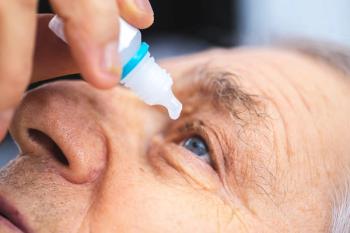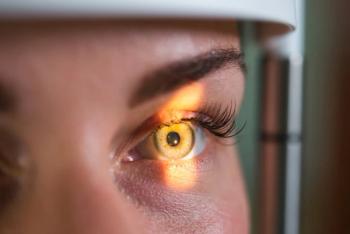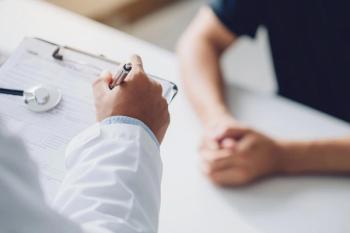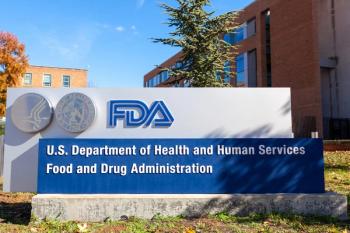
AOA 2024: The AOSA and sharing the wealth of knowledge with optometric students
Devin Sasser, OD, gives an overview of a panel and breakout session that the American Optometric Student Association will be hosting at AOA's Optometry's Meeting.
In a panel and breakout session with optometric students, panelists involved with the American Optometric Student Association will be able to give their best tips on successfully transitioning from being student doctors to professionals working in the field. Devin Sasser, OD, gave an overview of what he hopes students will take away from the event, held at this year's AOA and AOSA Optometry's Meeting in Nashville, Tennessee, from June 19-22.
Video transcript
Editor's note: This transcript has been lightly edited for clarity.
Devin Sasser, OD:
Hello, my name is Devin Sasser. I am a Doctor of Optometry practicing in the Maryland area. I went to school at the University of Missouri St. Louis College of Optometry, graduated in 2015 and been practicing in Maryland about about 5 or 6 years now. So I practice primarily in a medical based optometric setting. And I'm really excited to be here.
So we're going to be talking to some [American Optometric Student Association, or] AOSA students, some optometry, who are planning to kind of transition into professional eye care here pretty soon. And so a panel of us are going to be talking about our experiences as students and also our experiences trying to transition from students to doctors, and everything in between. So we're going to start off with the panel. And then we're going to have some small breakout sessions where we get more one-on-one interactions with the students and really kind of pick their brain and allow them to pick ours as well.
So we're talking about a couple of things, how to be successful being one, how to transition from that student doctor to a professional doctor in the scheme of professional participation. There's our professional organization called the American Optometric Association. It's our big organization that encompasses all optometrists throughout the entire country and it's a large organization. And so sometimes it can be difficult to sort of find your footing within that large swath of people and professionals. And so our goal is to kind of interact with them and let them know that it's easy if you try and the best practices and best ways to stay involved, as you're going from student to doctor.
My main key is the idea that no job is too small. Oftentimes, we try to go for the big fish in participating and think that we have to be the person in charge or the person in charge of the committee, things of that nature. But I find it most useful sometimes to work at the grassroots level, specifically when we're dealing with state associations or local societies. And that's where a lot of the work is being done. And so it's important to get involved and get into those systems so that number one, you meet your colleagues who are directly around you, but also have the foundation to then move on to the larger roles within the profession. So I think it's important to understand that there is no role that's too small within optometry. We're all working together to push the progression forward. And a lot of times we get caught up in being the big fish and feeling as though we have to be the person in charge when, in actuality, the most important roles are those that are much smaller and working to lay the foundation for our profession to succeed. So very important, I think the major key is to get linked in to your local society, and also your state society and state association, to really kind of find your footing.
My biggest thing was time management. As a student, I was the AOSA president nationally. And so I felt like I was always doing something, always busy. And unfortunately, that led to my burnout, essentially. And so when I became a young professional, I just wanted to work, I didn't want to do anything else. I didn't want to sit on any committees or go to any conferences, I just wanted to make the money that I've been trying to make my entire life. And it's easy to do that, and if I could go back and tell myself: you don't have to be the person involved in everything. Maybe if you're feeling burnt out, or if you're looking to get in, get involved in one thing, something small, and then kind of work your way back and understand that everything doesn't have to happen at once.
So it's a pretty good panel. It's very diverse in that there are all kinds of graduating classes on there. We have one doctor named Dr. Andy Mackner. He is the AOSA president from a couple years back. We also have some more seasoned ODs, who served in various roles within the AOSA, the common thread being we all were involved as students and now we're all involved as professionals. And so we have the full spectrum of people in age and practice modalities and all kinds of things to really kind of represent what's going on in our profession.
I think it's important to find your path and understand that your path is not the path that everyone's going to take and it's specific to you and your journey and just know that you're going to make the right decisions for you but also know that you have a huge network of support as you're kind of venturing off into this new world of being a paid OD, which is a lot more fun.
Newsletter
Want more insights like this? Subscribe to Optometry Times and get clinical pearls and practice tips delivered straight to your inbox.









































